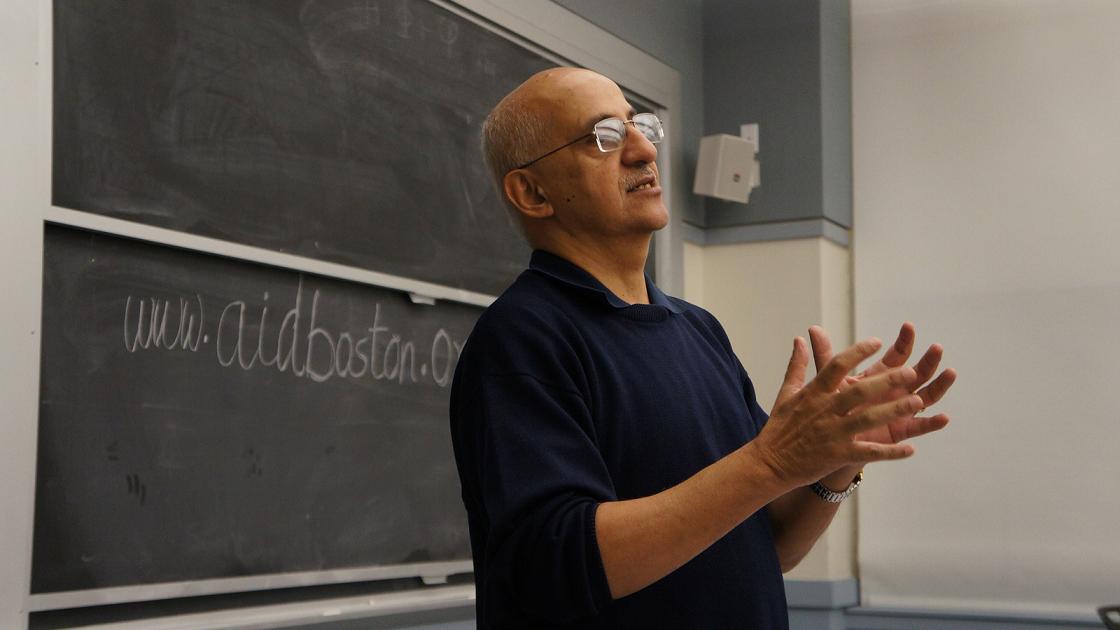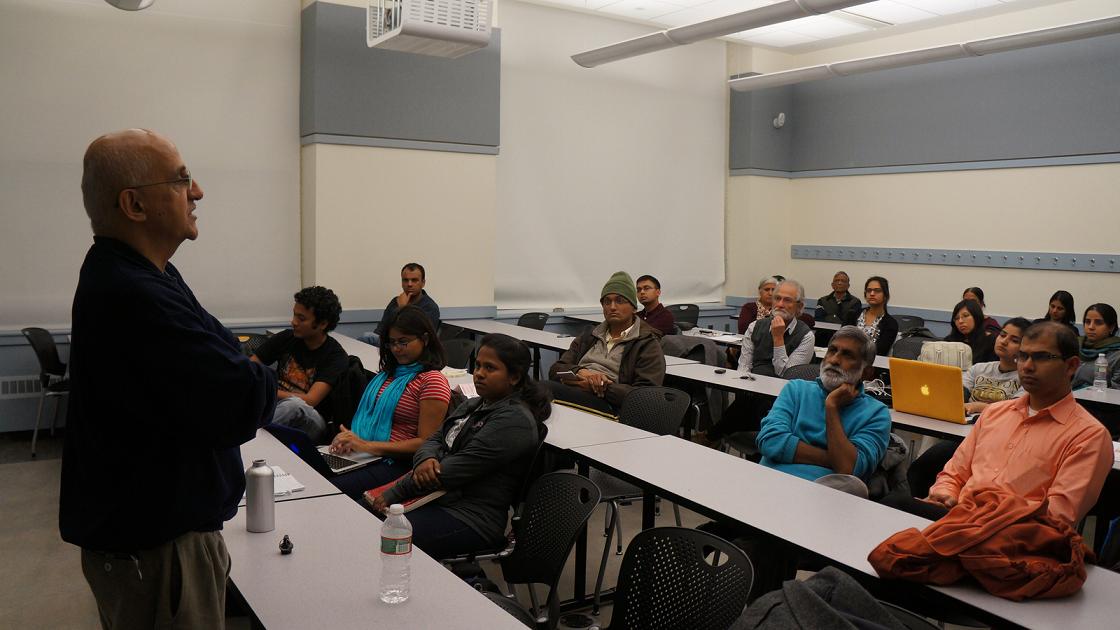Contribute
| Right To Food Champion Harsh Mander Presents Case For India’s Food Bill |
Press Release
11/06/2013
Harsh Mander, a former member of the Indian Administrative Service (IAS) and of the National Advisory Council (NAC), delivered a lecture titled “India’s Unfinished Battle Against Hunger†on Thursday Oct 24 at the Massachusetts Institute of Technology (MIT). The talk was based on Mander’s latest book, “Ash in the Belly - India’s Unfinished Battle Against Hunger,†organized by the Association of India’s Development (AID), MIT and Boston chapters. About 30 people attended.
“India is home to every 3rd malnourished child in the world,†Mander noted, underscoring India’s stark inequalities. He particularly emphasized inequality with indifference. “We have forgotten our own ways of sharing food and resources, like the langar, and have not learnt new forms of social support systems, like soup kitchens,†he said.
The result is an enigma where, despite India's rapid economic growth, enough food to feed every citizen of the country, a strong and functioning democracy, Integrated Child Development Service (ICDS) centers, and public distribution system outlets (“ration shopsâ€); there are over 200 million people who sleep hungry every night.
Referring to University of California Los Angeles (UCLA) anthropologist Akhil Gupta’s calculation which concluded that more people die every year in India of preventable causes (like not having enough food, healthcare, clean water) than from all natural disasters, he wondered why there was no outrage. “Because there is a naturalization of poverty and hunger, an inevitability,†Mander explained.
“We need to discuss hunger without detachment ,†he stated, stressing the real nature of hunger. He outlined three ways that the poor coped with hunger, which included training their bodies for dealing with craving for hunger, surviving on psuedo-foods (like tubers, grasses etc) and engaging in desperate measures, like becoming bonded-laborers or becoming part of distress migrations.
He further enumerated five responses to the issue of hunger: food security (adequate food production), food absorption (retention of nutritional value of food intake), food sovereignty (control over food production resources like land, seeds etc), India’s endemic and historic inequalities (which cause unequal distribution of resources) and the case for state provisions.
Explaining that there were three ways people gained access to food - as producers, through purchase, receiving as part of state provisions - Mander explained how India’s current Right to Food Act (the Food bill) came into the picture to ensure minimum access to food grains to a large portion of India’s population for almost no cost.
“The bill is not a permanent answer,†Mander said. “But I believe this it is necessary while we figure out the problems 1 through 4 which have formed the traditional responses to the issue of the hunger crisis in India (listed above).â€
“80 million tonnes of grain are in our warehouses. Instead of donating to poor in India, the government resists this and instead exports to europe and elsewhere for cattle- and pig-feed.â€
Mander listed the criticisms that the Food Bill has encountered which included its price tag, it being non-implementable due to corruption and that it might “de-incentify work†by providing doles.
“If the poor had two more rotis a day, would they become lazy?,†Mander asked. He concluded the talk asking whether we have diverged from the idea of a good society. According to Mander, “A good society, is one in which we take care of each otherâ€.
You may also access this article through our web-site http://www.lokvani.com/

